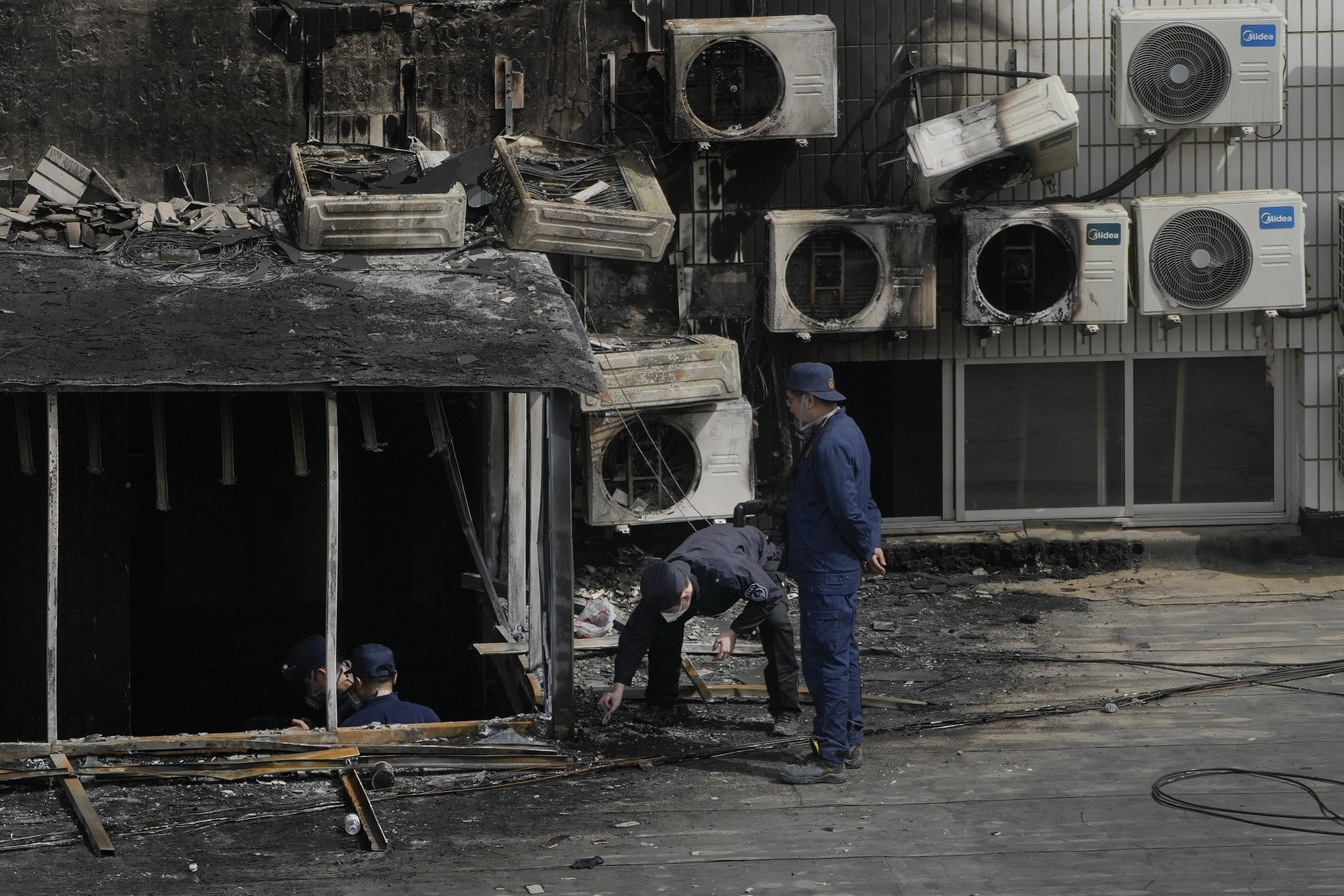
Beijing hospital heartbreak raises questions on China’s treatment of elderly
- As investigations begin into a Beijing inferno that killed at least 29 people, a rapidly ageing Chinese society needs to take a long hard look at itself
Shock and heartbreak follow a hospital blaze that killed 29 people, most of them elderly or palliative care patients, and injured dozens of others in Beijing’s deadliest inferno in two decades. Arrests have been made and investigations are now under way.
Lessons must be learned from the tragedy. In question are not only the management of the hospital and the response of the authorities, but also care services for the elderly in a populous and fast ageing nation.
According to local media reports, the fire spread on the fifth floor of the east wing of Changfeng Hospital where, as a result of age or poor health, many victims also experienced mobility problems. Footage of people jumping out of windows or hanging onto air conditioners on an outside wall brought home the horror as it went viral on social media.
The dead included 26 patients, a healthcare worker, a nurse and a visitor. The toll, which rose to 29 from 21 on Tuesday, may be higher still.

Our thoughts are with those who perished and their families and friends, many of whom had for hours tried in vain to find out how their loved ones were. A press conference was eventually held by the local authorities the following day, and the hospital site in Fengtai district remained cordoned off.
A more transparent and swift response would have helped calm emotions. Such an approach is especially important when dealing with crisis situations, and authorities in the capital should be more forthcoming when handling matters relating to investigations, disciplinary measures and compensation.
At least 12 people, including the hospital director and the head of a construction company, have so far been detained. The blaze is believed to have been started by welding sparks while renovations were being carried out.
This raises questions as to what, or whether, precautionary measures had been put in place. Authorities have somewhat belatedly pledged thorough citywide safety inspections at medical and other institutions to minimise safety risks.
There are suggestions that the cash-strapped private hospital has been proactively admitting elderly patients and turning the facility into a de facto residential care home for the weak and vulnerable. If this is the case, it could well explain the complaints of there being inadequate support services and facilities for the aged.
Even though honouring the elderly is an integral part of Chinese tradition, care services and facilities in mainland China still lack the necessary investment. Putting investigations and the accountability of authorities aside, the hospital tragedy should also prompt deeper reflection on how to better support the nation’s rapidly growing ageing population.

